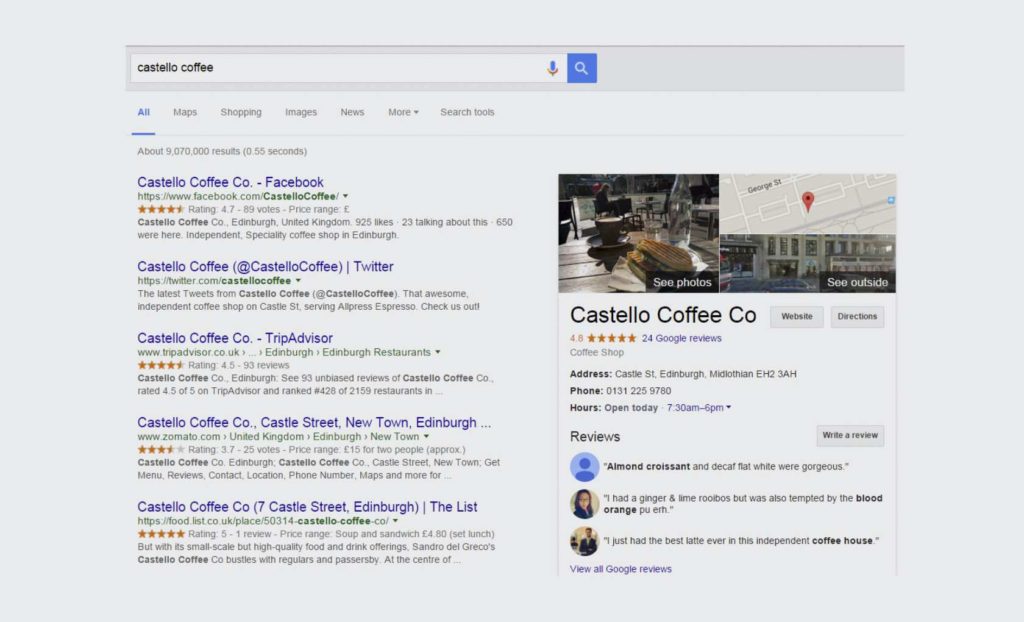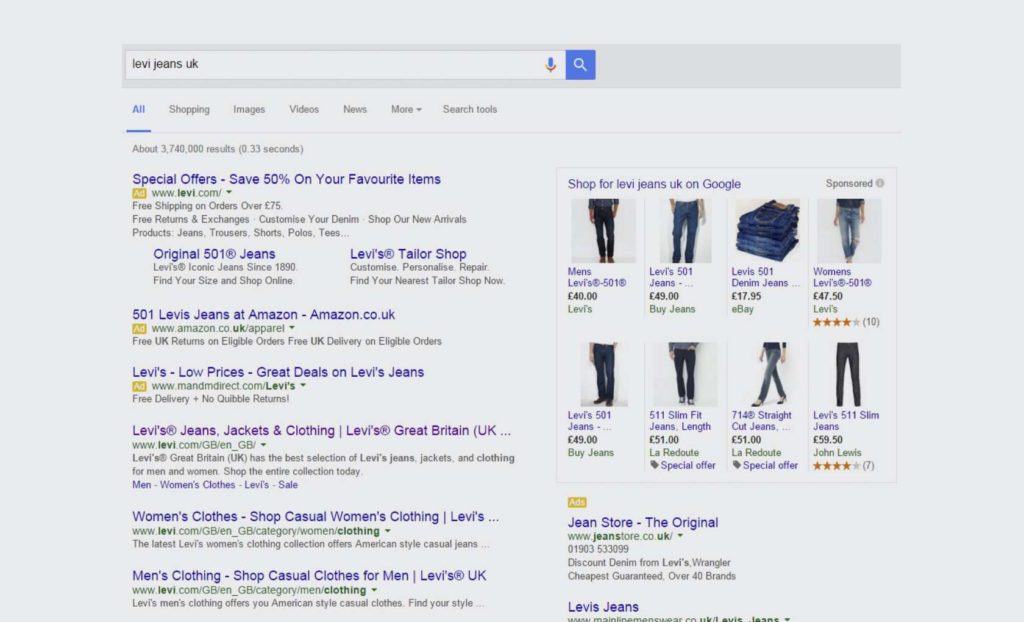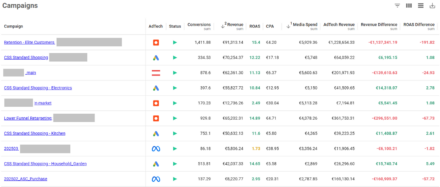Should I bid on brand keywords in AdWords?

Should you be bidding on branded keywords? This is a much debated topic here at QueryClick, and chances are you have landed on this article with your own opinion.
There is no right or wrong answer. What’s right for your brand or company may not be the right choice for another business, and it all centres on your brand name, current competition, current SERP performance and business goals.
Should I Stop Bidding On Brand?
Some clients are hesitant to spend money on traffic that could have come for “free”. Below you can find the main reasons to not bid on brand:
- There’s little, to no, paid search competition
- You’re ranking number one organically
- You have maximum organic presence on the SERP (e.g. website, social media, local directories, etc.)
Take, for example, a lovely coffee shop based here in Edinburgh:

Reasons for Castello Coffee to not bid on Brand:
- They have no paid search competition
- The SERP is filled with organic listings that are directing users to their coffee shop – whether this is from TripAdvisor, local directories or their own social media pages.
It seems evident that, because of the lack of competition, they are losing little to no traffic to competitors. Paid search in this instance would be wasted money and provide little progress towards their business objectives.
So Why Should You Bid On Brand?
Brand protection
Although you may be ranking number one organically, there could be three different ads appearing above you, and more ads and Google Shopping appearing on the right side bar. These ads could be “stealing” potential traffic and revenue from you, as shown in the image below.

Without bidding on their own brand, Levi Jeans would be lost among their competitors. The image above only shows a snippet of the search engine results page (SERP). In total, Levi had competitors showing on ten search ads, and six for Google Shopping.
The benefits:
- It’s cheap (in most cases) due to the higher quality score and relevancy of the search.
- You can choose and control your own messaging – with a coherent PPC and SEO strategy, you can ensure that you’re providing two different USPs and messaging on the results page of the SERP.
What About Affiliates?
You would need to review your contract to see if they are authorised to bid on your brand term and use it within the ad text. Even if your brand name is trademarked, affiliates can still use it within the ad text if they have a dedicated landing page for your product, so watch out!
What’s Our Opinion?
Here at QueryClick, we like the data-driven approach. We’ve analysed brand paid search for a number of our clients, and have found no evidence of cannibalisation. We’re not saying it hasn’t happened, but in our experience, we’ve found that having a paid and organic strategy can result in incremental brand revenue.
For an e-commerce client, we found that paid brand searches can account for a 26% increase in revenue. That’s a substantial gain!
Although we cannot know 100% for sure, we use data from Google Analytics and Search Console to review SEO and PPC brand searches. From here, we can use numbers and various assumptions to review what’s best for your business. That’s why data-led approaches are important in maximising your performance. Trust numbers, not opinions.
Own your marketing data & simplify your tech stack.
Have you read?
Chrome’s announcement on dropping cookie opt-in last month closed the door on a 5 year saga for marketers. But what is the landscape like in 2025 for cookie-based measurement?
Generative AI is transforming the way that marketers plan and assemble content for their Paid Ads. As big platforms like Google, Meta and TikTok increasingly build the tools needed to...
In a surprising move that has sparked heated debate, Mark Zuckerberg announced on his Instagram that Meta will be reducing its levels of censorship and in particular fact-checking on its...


